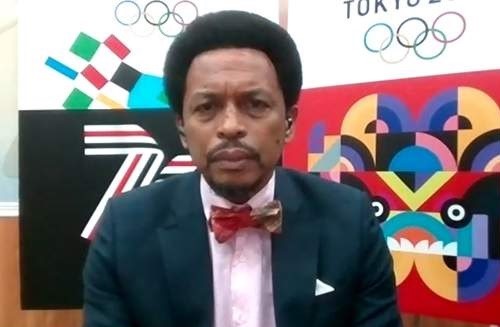THE calls for more meaningful government support and oneness of purpose were resounding as Special Olympics Caribbean Initiative hosted its first-ever Sport Ministers Forum recently.
From regional sport ministers to global Special Olympics advocates and administrators the message was clear: Respective governments throughout the Caribbean should give more tangible input to developing programmes for people with intellectual disabilities by laying out policy framework.
The objective is to map out a coalition of regional government representatives who will work with Special Olympics athlete leaders to use sport to build awareness of and inclusion for people with intellectual disabilities.
“The reality is that, especially in the Caribbean, those who have disabilities — be they intellectual or otherwise — are very often marginalised [and] they are underserved. Even with the best of intentions and will we failed them,” Brian Lewis, president of the Trinidad and Tobago Olympics Committee, said during the virtual forum which was staged on October 6.
“It is very important that we focus on collaboration, co-operation [and] integration. It is very easy to pay lip service… Governments come, governments change and the truth be told it's not everyone who has the same passion and commitment and feeling for the challenges faced by, in this case, those with intellectual disabilities,” noted Lewis, who also heads the Caribbean Association of National Olympic Committees (CANOC).
Special Olympics Jamaica (SOJ) is considered a model for Caribbean countries to emulate because of its decades-long partnership with the Jamaican Government fortified by the signed agreement between both parties in 2005.
SOJ has programmes in each of Jamaica's 14 parishes, serving over 4,000 people with intellectual disabilities.
Special education and sport-related programmes which cater to people with disabilities are supported through partnerships with the Government and the private sector.
Jamaica's Sport Minister Olivia Grange, while accepting there is room for improvement, noted that government policy provides the foundation for sustained development of the movement.
In adding to the appeal for regional development, she said alliance among Caribbean nations is a key component.
“We acknowledge that the need to promote greater engagement and inclusion… is beneficial to our respective nations and the region as a whole. We look forward to continuing the dialogue beyond this forum,” Grange said during her address to the inaugural Special Olympics Caribbean Sport Ministers Forum, attended by over 50 people, including regional and global stakeholders.
Dwight Sutherland, the Barbados sport minister, said he backed a Caribbean leadership council, comprising former and current athletes.
“Barbados has joined Jamaica to lead the charge in ensuring that people with disabilities form part of the decision-making, form part of our development, form part of our Government and our government strategy,” he said.
Special Olympics Caribbean Initiative Executive Director Lorna Bell re-emphasised the importance of regional togetherness.
“We are hopeful that this forum for sport ministers across the Caribbean will open the door towards Caribbean unity. The accomplishments of Special Olympics Caribbean Initiative were achieved largely because of programme leaders and the support of the Caribbean Initiative team,” she said.
Bell, the former SOJ boss, noted the development progress in a number of Caribbean countries, while urging sport ministers and administrators to rally their governments to support athletes with disabilities.
“Ministers, Special Olympics is asking you to work with us by supporting your athletes with intellectual disabilities, so that everyone will be given a chance and no one will be left behind. This movement is more than sport, it's all about changing lives. We want you to join us in the revolution for inclusion,” the Caribbean Initiative director declared.
Bell encouraged sport ministers to attend Special Olympics athletic events which should offer them a deeper understanding of the movement.
She said 13 Caribbean programmes are to compete at the 2022 United States Games in Florida, while two are down to feature at the Unified Football Cup in Michigan, also scheduled for next year. The Special Olympics Caribbean Open Water Swim/Beach Games/Triathlon is to be held in Curacao in late 2022.
Retired United States basketball star and Special Olympics global ambassador Sam Perkins reinforced Bell's invitation.
“I've seen athletes across the world with intellectual disabilities and the joy that I've seen and the misconceptions of people not knowing what Special Olympics is all about. [They] need to attend some of these sport events because as an athlete in the NBA they emulate the things that we do,” Perkins said.
Trinidad and Tobago's Kester Edwards, a Special Olympics sport development manager, told the forum that as a six-year-old he sustained injuries in a motor bike crash, was in a coma for two to three weeks and was diagnosed with intellectual disability.
A former multi-sport athlete, Edwards has served in various roles in support of the global movement.
“My dreams became bigger than me as I realised I'm helping to create opportunities to give back what was given to me,” he explained.
David Evangelista, president and managing director of Special Olympics Europe/Eurasia, noted that despite the novel coronavirus pandemic highlighting inequities facing people with intellectual disabilities it has not defeated their spirit.
“Through the powerful and transformative role of sports, we have seen this population be empowered… and most importantly, we have seen them eager to continue to contribute to the pride of sport in their nation.
“Our hope is to emerge from this forum with renewed commitment… from all of you to support the talents and dreams of athletes with intellectual disabilities,” Evangelista said.
In closing out the forum, Tony Wyllie, the president and managing director of Special Olympics North America, which includes the Caribbean, credited the regional leadership with making developmental gains while “creating history” in helping “people who need a voice”.

